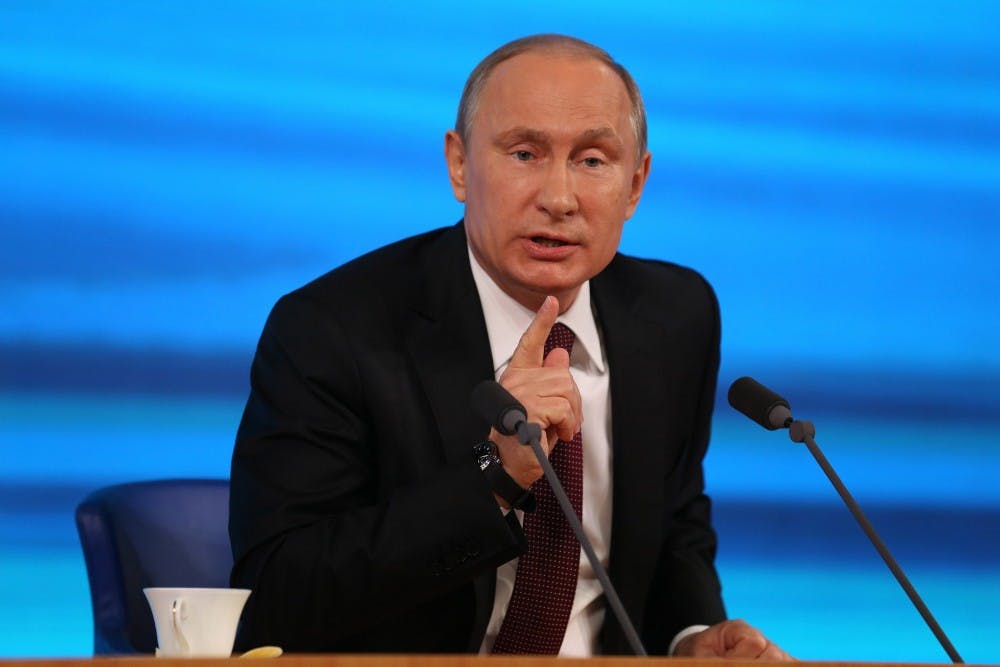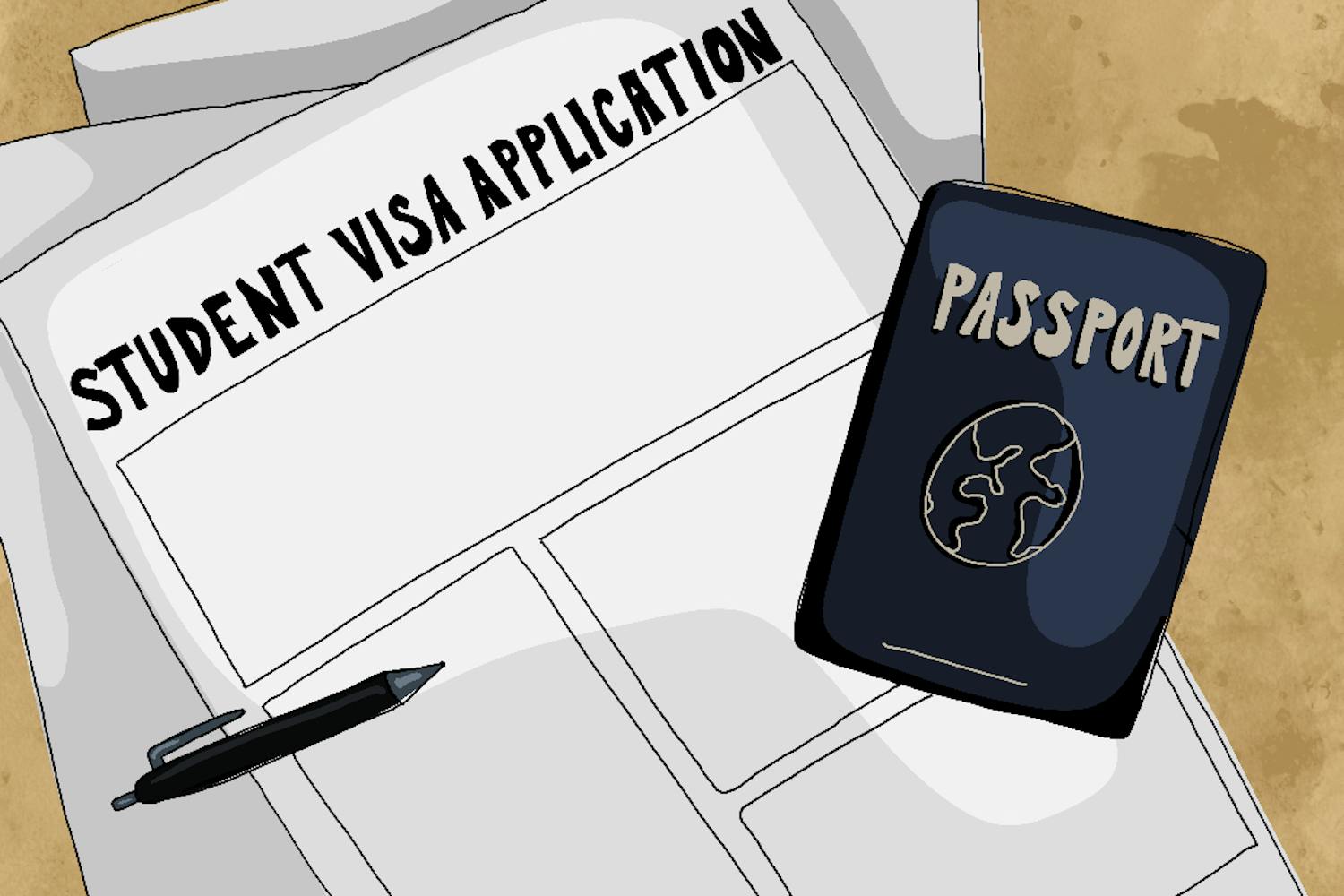"Is it ever wise to ignore enemies of freedom and justice?", Diane Foley, mother of slain American journalist James Foley, said.
Call them ISIS, call them ISIL, call them Daesh (my new personal favorite: for a detailed explanation behind its origin and pointedness, read this), call them what you will: I dub them screwed.
After downing Metrojet 9268 last month and releasing this extraordinarily brutal video rife with threats directed against Russia, they have successfully poked the bear. Russian President Vladimir Putin is responding with the largest bomber strikes they’ve launched in decades.
After slaughtering nearly 200 civilians in Paris last week, they have provoked the French into responding with “a war which will be pitiless.”
Let us not neglect to mention the nations who deal with these atrocities on a daily basis from Daesh. The suicide bombing a week ago in Lebanon, April’s mosque bombing in Yemen (or September’s) and the Libya,Tunisia and Egypt attacks — they all serve as examples of the constant threat under which the nations in Daesh’s neighborhood face.
Just today, in Daesh’s online magazine "Dabiq," Daesh announced the execution of two hostages, one Chinese and one Norwegian, after neither nation paid their ransoms. It’s not likely we’ll see Chinese intervention anytime soon, but maybe they can throw some vocal support behind Daesh’s opposition.
Earlier this week, Daesh produced a new video threatening New York City with images of a suicide bomber strapping up for his mission. They have beheaded our citizens already, and they claim on social media that American blood is the best to spill.
It is due time to ramp up our preemptive attacks, because failing to adequately address the threat Daesh poses has permitted them to wreak the havoc they have so far. The civilized world, across borders, religions, cultures, languages and political systems needs to come together against a common foe.
There is much debate over how exactly to proceed against Daesh going forward, and much of that goes well above my pay grade ($0). But there are a few key ideas our officials and our allies alike must consider in our joint policy regarding Daesh.
Make no mistake, we, the civilized world, must destroy this force. You can’t bomb an ideology, but you can kill the monsters who hold it. If more come up, so what? Strike them down the same way. This group celebrates zero diversity of ideas, religions or opinions. They are incompatible with other human beings and societies.
These people do not fear death, they embrace it. They don’t value their own lives — that is self-evident from their tactics. We should measure their lives with that selfsame value and decimate them accordingly. Daesh does not play by any rules except its own; they will not cease their jihad until we, or they, are dead. That is fact.
This group wants to spread hate and destruction and death to all who oppose it, at any cost. There is no diplomacy, there is no compromise. They choose to fight a boundless, unethical war of total world attrition and we must respond in turn by fighting a precise, restrained war of elimination and eradication.
We cannot kill innocent civilians in waging this war like we did in Iraq — this is why the Pentagon has refused in the first place to initiate wide-ranging airstrikes — because those misdirected attacks only strengthen the resolve of Daesh and expand the pool of people ready and willing to join Daesh. This war must be waged properly, that is, slowly and accurately. This will be a long war, no matter our approach.
Daesh is clearly not representative of the whole of Islam. Their caliphate is more a political creation than a religious crusade, but Islam is the tool they utilize to capture new recruits. In spite of being only a violent, minuscule minority of one of the world’s largest religions, Daesh’s twisted philosophy must be fought as though it threatens the fate of Islam itself.
The religious battle against Daesh is truly a battle for the soul of Islam and the perception of Islam around the world. Moreover, if our Muslim and Arab allies refuse to help Western powers and Russia in destroying Daesh, I have serious questions about their motives and deep reservations about their allegiances.
Daesh kills far more Muslims than non-Muslims, but somehow the allure of blood oil money still intoxicates individuals and the governments of Muslim nations alike, namely Turkey, who despite taking in millions of refugees from Syria is turning a blind eye to the terrorists who displaced them to start with. The Syrian rebels that the U.S. backs are guilty of this same transgression. They would both do well to learn from the fable of the scorpion and the frog.
Some of our supposed allies are clearly helping Daesh, if not funding them outright. We need to lay heavy sanctions and punishments against our allies in the region who choose short-term economic gain over the security and stability of the wider world. The U.S. itself needs to cease funding groups like we funded Al-Qaeda in the 1990s, as a general policy strategy, before we have the standing to get our allies’ houses in order.
Our new offensive strategy seems to be working for the time being, with oil production taking a sizeable hit in Daesh-controlled territory, but it will take more than airstrikes to conquer Daesh. The U.S. will need the assistance of regional and international allies in order to decidedly crush this embodiment of evil once and for all.
George W. Bush was tough, but he was not smart. Regarding our wartime strategy, we cannot repeat the mistakes of the post-9/11 invasion. We cannot indefinitely put more of our troops back in the Middle East. We cannot leave the area currently controlled by Daesh in chaos after they’re destroyed, or we set the stage yet again for perpetual extremism to rise. Fixing the problem that is Daesh will take much more than simply wiping them out in their stronghold, but it’s undoubtedly a good start.
Related Links:
Using force against ISIS is necessary
Interfaith vigil offers support, prayers for victims of ISIS
Reach the columnist at hfinzel@asu.edu or follow @OnlyH_man on Twitter.
Editor’s note: The opinions presented in this column are the author’s and do not imply any endorsement from The State Press or its editors.
Want to join the conversation? Send an email to opiniondesk.statepress@gmail.com. Keep letters under 300 words and be sure to include your university affiliation. Anonymity will not be granted.
Like The State Press on Facebook and follow @statepress on Twitter.




